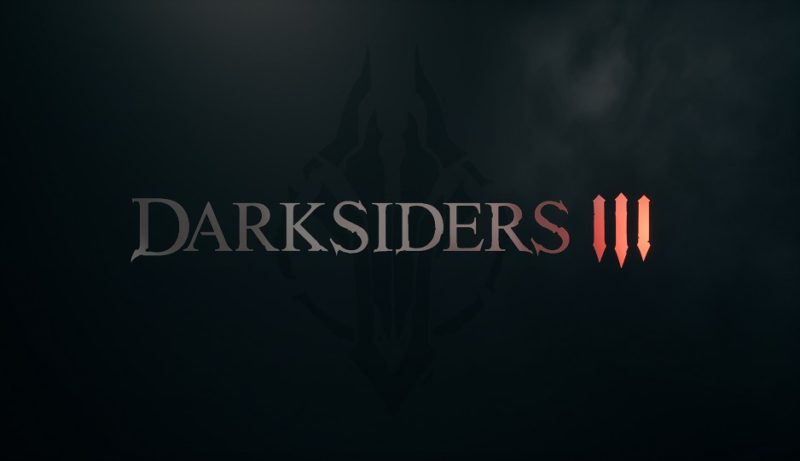
Six years after Darksiders II, and with the original developers at now shuttered Vigil Games partially reunited at Gunfire Games, Darksiders III finally arrives to continue the story of an apocalypse come early. As seems to be a tradition with Darksiders, the gameplay is changed up from the previous installment along with introducing a new lead protagonist. Fury, the third sibling of the Four Horsemen of the Apocalypse, erupts onto the scene of wartorn Earth with her own flavor of warrior pride, aggression, and sass, along with a fighting style that partly resembles the classic God of War games and partly resembles the original Dark Souls. Not to be outdone by her brothers, War and Death, Fury’s mission pits her against the Seven Deadly Sins, and Heaven and Hell both, in an effort to restore balance to the Earth and cosmos at large.
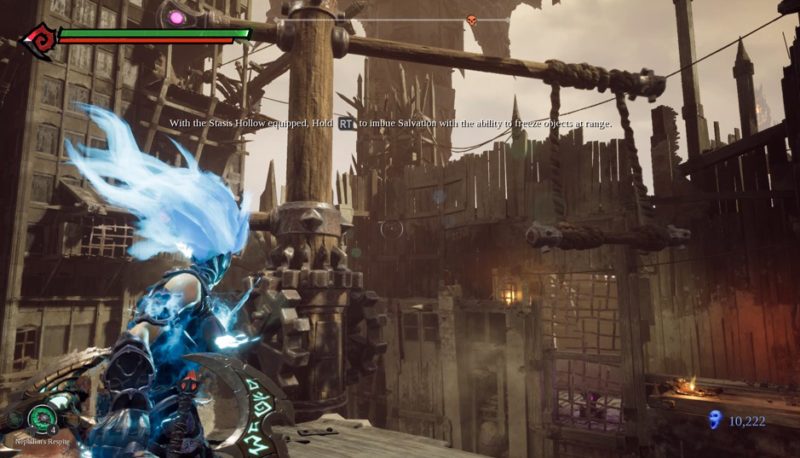
Darksiders III opts for a semi-open world design that takes inspiration from the Metroid series. Throughout her journey, Fury runs into all kinds of interesting roadblocks and terrain changes that require different abilities and weapons to remove or traverse. For most of the game, these upgrades are given to the player at a steady rate that keeps the experience fresh. Also admirable is the lack of mandatory backtracking, which is usually a hallmark of platform adventure games like Metroid. After defeating a boss and acquiring a new weapon and/or ability, the path to the next major part of the game is usually obvious. This is thanks to a compass that constantly points out where the nearest of the Seven Deadly Sins resides, and a level design that often places new pathways to explore just beyond the latest boss. If and when one backtracks through previous areas, it’s usually to search for secrets or to potentially uncover shortcuts through the world.
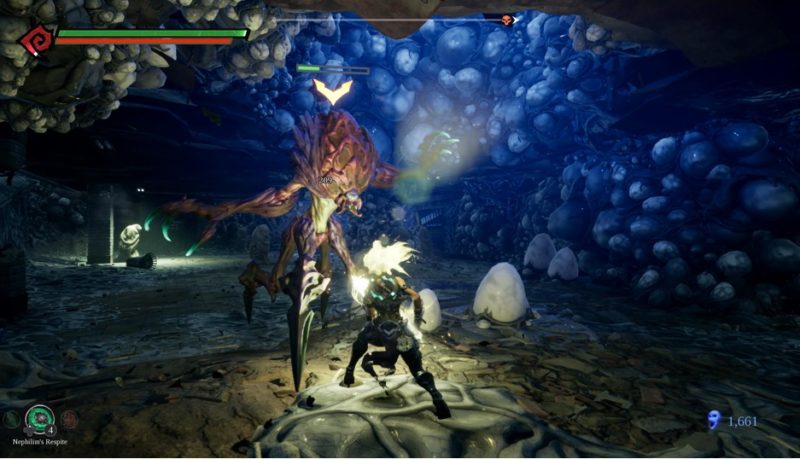
In terms of combat, Darksiders III is primarily a hack-and-slash game, a la the original God of War games, but without the emphasis on building up ridiculous combos. This sets it apart from the Devil May Cry and Ninja Gaiden elements those familiar with Darksiders II will recall. Instead, weaker groups of enemies are tossed aside with fancy attacks that allow the player to largely throw caution to the wind, but middling and stronger enemies force combat to slow down and become more measured. This is where the Dark Souls inspiration shows itself, particularly in one-on-one encounters with tougher enemies that allow you to fully implement the modest combo list for the different weapons without your opponents turning into mush immediately. Many enemies demonstrate carefully choreographed attacks with precise tells that the player wants to exploit with well-timed dodges and counter attack. As the game progresses, encounters like this become the norm, and the respectable damage and health of the enemies goes a long ways towards exchanging the guilty pleasure of overpowering dominance with the satisfaction of outmaneuvering and outfighting dangerous adversaries regularly. As Fury damages and kills enemies, she builds up both Wrath and Havoc. Wrath provides different special attacks and bonuses depending on the weapon Fury has equipped, but depletes itself entirely after each usage. Havoc is gained much more slowly, but allows Fury to temporarily transform into an invincible form that regenerates health and bombards enemies with rapid arcane attacks. Killing enemies occasionally yields power-up items, materials to upgrade Fury’s weapons, and souls, which serve as currency for buying items and as experience points, also reminiscent of Dark Souls.
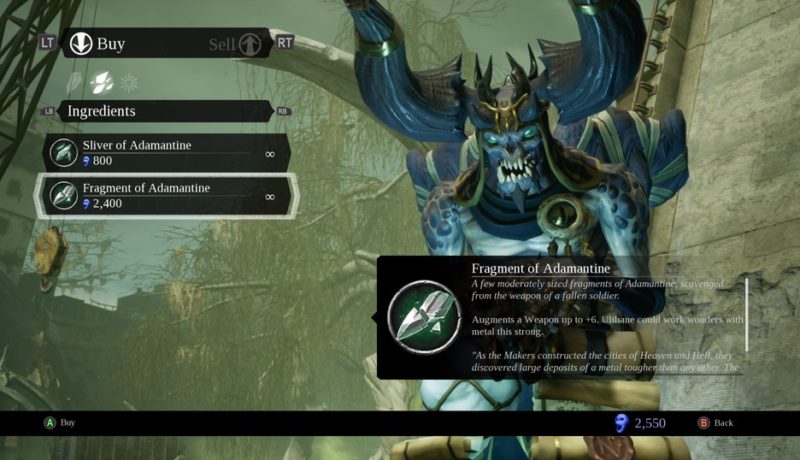
While the combat is quite good overall, it frequently comes into conflict with the camera, which seems to have an agenda outside of helping the player. Fury is the center of focus throughout the game, and the camera remains very close to her person as much as possible. This works reasonably well when fighting single opponents, or even a couple enemies at once, but quickly becomes a problem in scenarios where three or more begin attacking. The camera, due to its close proximity, doesn’t frame the action of combat very well, which makes getting blindsided by enemies off screen annoying common. Even if one avoids locking onto enemies entirely and attempts to manually reorient the camera during combat, it’s not always an effective solution. The developers must have realized this because they implemented a warning system that makes colored lines pop up on screen from the direction an unseen attack is about to come from, similar to counter systems seen in games like Batman: Arkham City and, more recently, Spider-Man. Unfortunately, the warning system is so faint visually that it might as well not be present at all, given how chaotic combat with groups of enemies tends to become. The camera issues could potentially be solved by simply zooming the camera out a bit further so enemies behind Fury can be seen more easily, or by just making the warning alerts bolder.
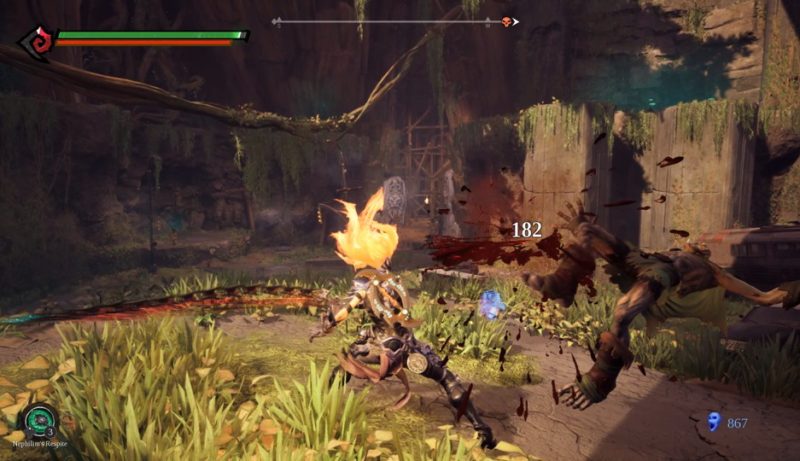
Darksiders III puts all of its efforts towards delivering on the main adventure of hunting down the Seven Deadly Sins. The storytelling is comic-like, hopping between moments of self-seriousness before indulging in occasional self-aware humor. It’s a bit difficult to care deeply about what’s going on in the story, though, as it holds firmly to a somewhat frustrating kind of ambiguity. Seemingly important characters deliver dialogue that suggests dramatic and interesting things will occur later in the game involving them, but usually nothing comes of it. Maybe they’re talking about something they’ll do in Darksiders IV? What teases.
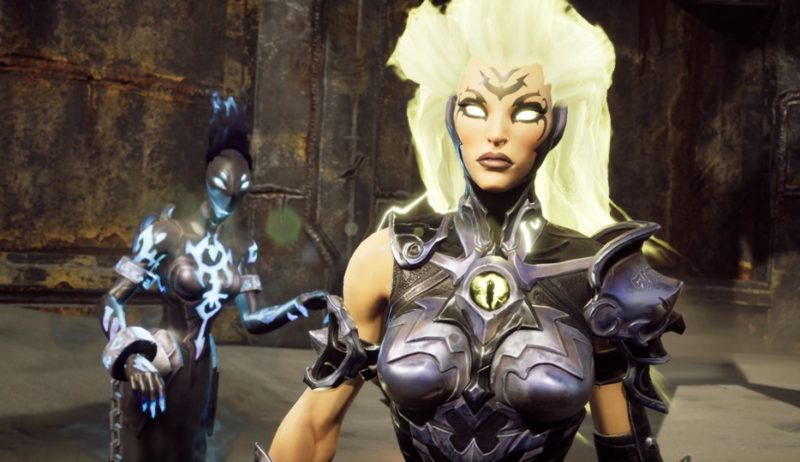
So that leaves us to instead focus on Fury’s development as a character, which is a bit uneven. Fury travels with a Watcher, a sort of ghost-like being intended to keep an eye on her and ensure that she carries out her mission. Dialogue between Fury and the Watcher bounces between animosity, tolerance, sarcasm, pensiveness, and friendliness with such frequency that it’s almost as if the writers weren’t sure how the relationship between Fury and the Watcher should develop, or how fast Fury should grow as a person. Perhaps this is a consequence of the semi-open world design combined with dialogues that were originally written with a specific order of in-game events in mind, but got scrambled up during development.
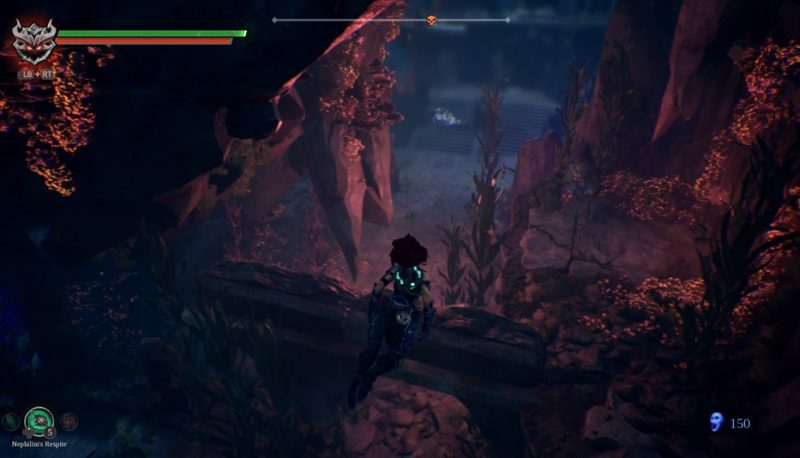
The world of Darksiders III has respectable variety for its length. Fury travels through ruined human cities, into subway tunnels infested with insectoid demons, deep into gloomy catacombs and magma filled caverns, and more. The use of thematic colors for these areas and the frequent introduction of different puzzles and environmental obstacles that take advantage of Fury’s variety of weapons and powers go a long way towards maximizing the appeal of each section of the game. The game takes full advantage of a stylish art direction that makes the characters and world pop out like comic book drawings given three-dimensional life. It’s just a shame that this world also seems a bit less full of that life than it deserves to be.
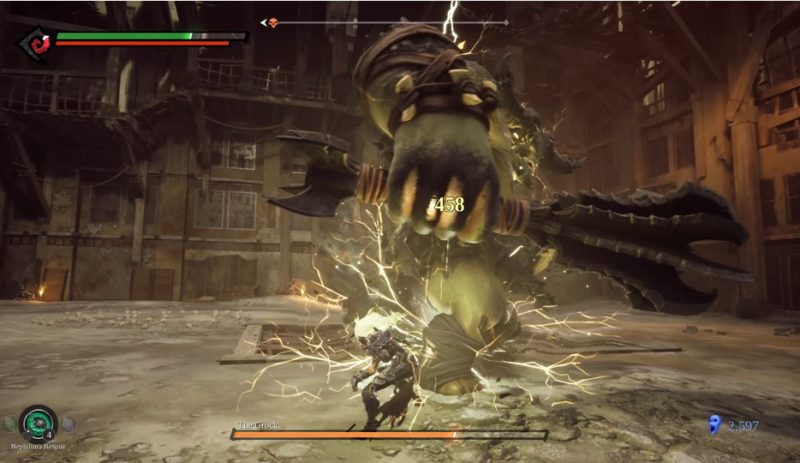
In some ways, Darksiders III feels like a game that stepped out of the 6th Generation, back during the era of PS2, GameCube, Dreamcast, and Xbox. The focus on its main story and adventure comes at the absence of almost everything else: there aren’t really any side quests outside of the player choosing to hunt for hidden upgrade materials to improve their weapons and stats. This has the effect of giving the game a focused, no fuss or fluff design, but also leaves the game feeling lean on content in other ways. A world design reminiscent of Metroid or Symphony of the Night lends itself well to multiple layers of secret areas, bosses, and side content. But Darksiders III sticks to the fundamentals and rarely offers anything to do outside of the quest to defeat the Seven Deadly Sins. Depending on the difficulty setting you choose, the average player is likely facing a 14-17 hour playtime. The experience offered is good, but doesn’t have much additional value beyond replaying that singular experience again, perhaps on a different difficulty. It’s difficult–disingenuous even–to judge the quality of a game based on the sheer quantity of hours that it takes to complete. However, one can’t deny that the price tag of a game generally influences audience expectations for a game’s lasting value. Darksiders III is a full 60 USD game, not a budget title, yet the experience it offers may not offer enough breadth of content to satisfy fans of the previous Darksiders games, which seem a bit meatier by comparison.
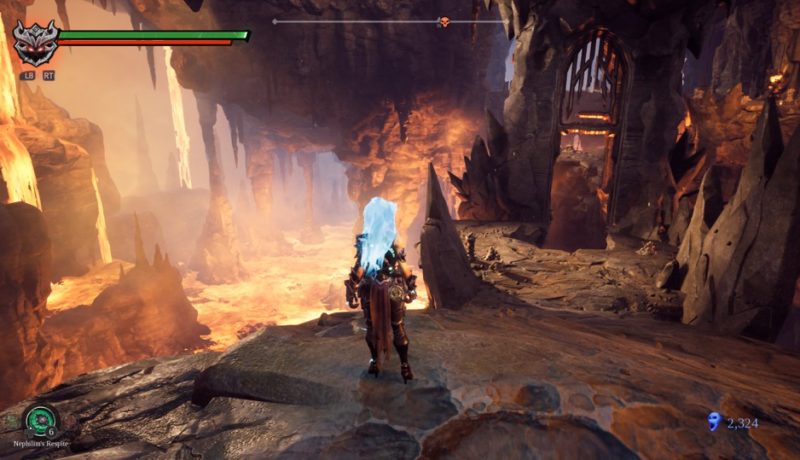
Is Darksiders III worth playing? Yes, it’s a good game that shines particularly well at higher difficulties with its combat system, issues with the camera aside. It’s a colorful, stylish game that provides some genuinely charming character and exploration moments along with a solid range of variety in level designs and boss encounters. However, it’s also a game that will inevitably shrink under the shadow of its predecessors a bit more than some fans will like. For other fans, though, the prospect of the Darksiders series finally continuing will be enough for them to see the strengths of Darksiders III more than its weaknesses.
7.9/10
Take a Look at the Darksiders III Trailer:
Darksiders III is scheduled to release worldwide on November 27, 2018 for PC/Steam, PlayStation 4 computer entertainment system, and the Xbox One family of devices, including the Xbox One X.
Steam Review
I've been gaming for 22 years, ever since my mom picked up a secondhand NES, and I've played on just about every gaming platform out there since. I think video games are one of most innovative and artistic mediums in the world today, and I'm always curious how developers will surprise me next.


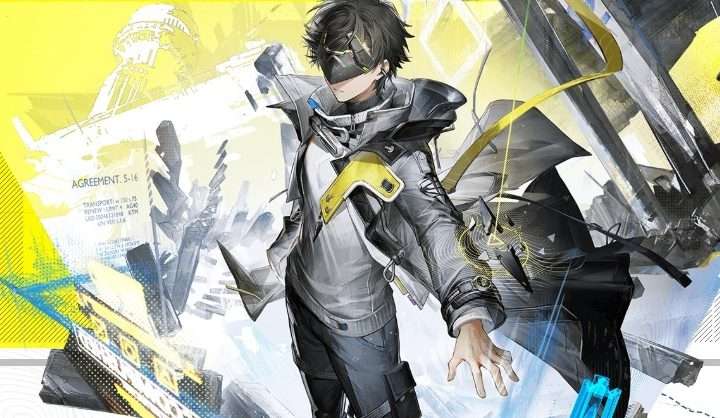
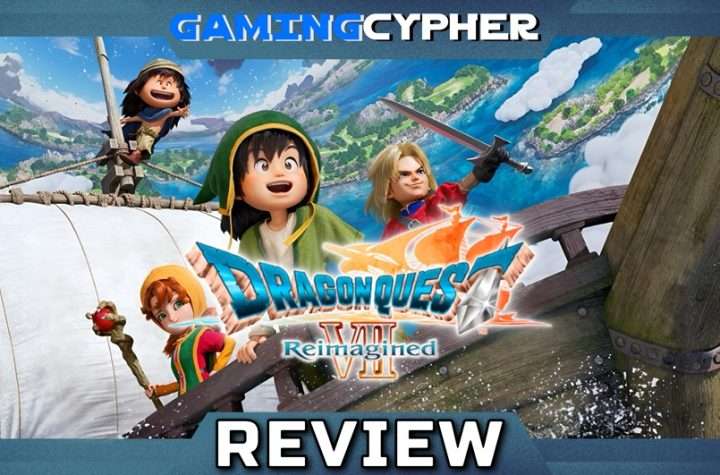
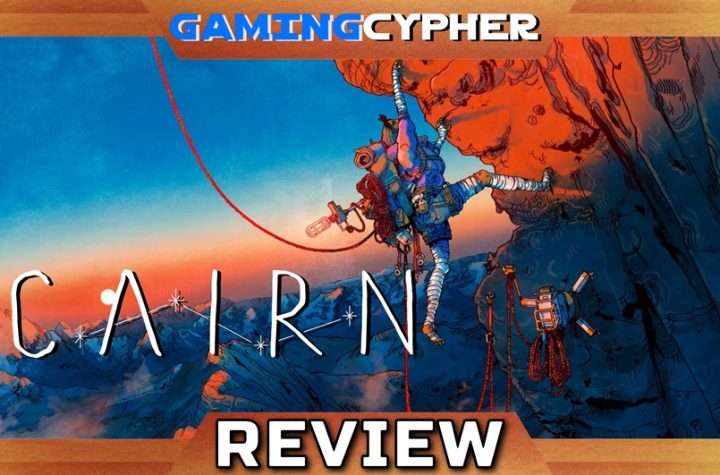
More Stories
RED DEAD ONLINE Features Bonuses on Collector Set Sales, Triple Rewards on Blood Money Opportunities, Plus More
Arknights: Endfield Review for PC
Dragon Quest VII: Reimagined Review for PlayStation 5